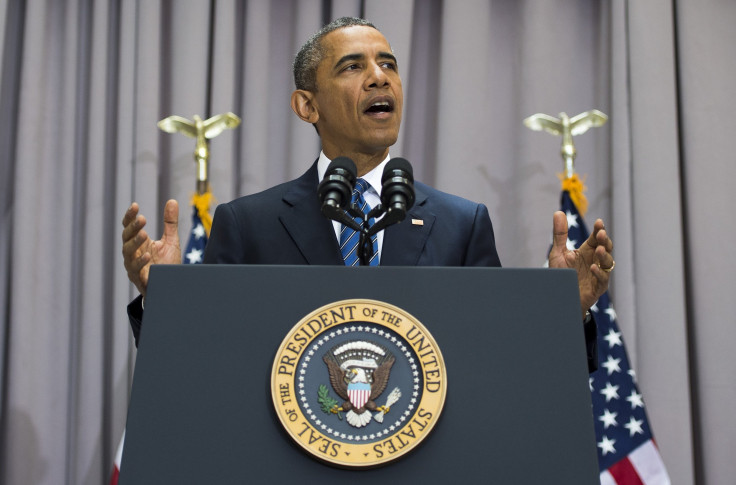‘Russia, Iran Do Not Believe Assad Regime Will Survive’: President Obama

President Barack Obama said that both Iran and Russia had revised their stance about the Assad regime in Syria. The U.S. president made the remark at the White House Wednesday afternoon.
Obama said that the possibility of getting a political resolution to the unrest in Syria was stronger because of the revised strategies of Iran and Russia. He said that even though neither of the countries was apparently concerned about the “humanitarian disaster” in Syria, both were anxious about the potential collapse of the Assad government.
The Syrian war has killed 200,000 people so far while thousands more have been displaced. Obama said that neither Russia nor Iran had the same feeling for Assad as they had a couple of years back.
Obama, however, said that even the support from Iran and Russia would not make the present situation any easier.
“The strongest opposition forces on the ground are vicious terrorist organizations that are constantly merging and blending with people who just want to get the yoke of an oppressive regime off their backs,” the Huffington Post quoted Obama as saying. “And being able to sort through what a representative government would look like -- one that would give Sunnis inside of Syria a sense of their rightful place at the table, while preserving protections for Alawite and Druze and Christians -- after so much bloodshed is going to be tough.”
The U.S. State Department referred to Assad as “the root of all evil.” Russia Today reported that the U.S. government blamed the Syrian president for “creating the kind of lawless area to the north,” which helped ISIS extend its roots.
© Copyright IBTimes 2024. All rights reserved.











